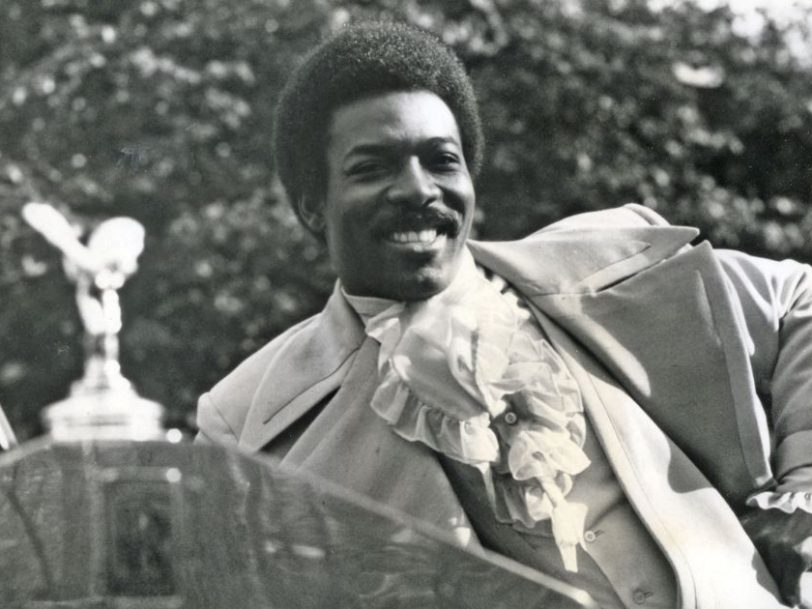Na, na-na-na-na, na-na-na-na, na na na, na na na, na-na na nahhh! It’s one of the most exciting opening lines to a song, ever. And it works as the opening salvo on The Exciting Wilson Pickett, too. There he is, dressed in pink on the cover, leaping in the air like a man ecstatically hailing a cab; and the background is also pink. The 60s was a period of extreme prejudice, so it took audacity to be a Black man posing in cerise. But this was Wilson Pickett, the baddest brother in soul. They called him The Wicked Wilson Pickett. If he wanted to jump around in pink, fine. As long as he kept singing the way he did, screaming the way he did, and giving his all, let the fella alone. Because what he could do, nobody else could do. Just ask Chris Kenner, who wrote and recorded Land Of 1,000 Dances: a great record, given an equally great treatment by Cannibal And The Head Hunters. But nobody handled it like Pickett.
Buy ‘The Exciting Wilson Pickett’ on clear vinyl at the Dig! store.
The background: Creating soul history
Atlantic Records had signed Pickett fresh out of The Falcons, a group blessed with future soul legends, Joe Stubbs and Eddie Floyd among them. He’d cut a single, If You Need Me, for Lloyd Price’s Double L label, but when he sent it to Atlantic, they had their established star Solomon Burke cover it, and Burke scored the hit.
Pragmatically, Pickett didn’t hold a grudge: he’d seen what Atlantic had done for Burke, and fancied a piece of it himself. After a couple of misfires, the label sent Pickett down to a Memphis studio they’d been doing business with for a while, Stax. It was 1965. Pickett reckoned it had been his idea to head South, inspired by Otis Redding records; Atlantic claimed it was theirs. Either way, Pickett didn’t like visiting the segregated South much, it made him edgy. He’d headed North from Alabama to Detroit in 1955, and was now very much a city slicker. But Memphis had the sound of soul, and Pickett struck up a handy writing partnership with Stax’s stalwart guitarist Steve Cropper. They were about to create soul history.
The first hit to come from the pairing was In The Midnight Hour, a brute of a tune that set Pickett on the path to becoming one of the best soul singers of his era. An In The Midnight Hour album followed. The song’s brittle rhythm had been shaped by Atlantic Records’ Jerry Wexler, who asked the band to emphasise the second beat of every bar so it fitted the jerk, the youth dance craze of 1965. So far, so wicked. Pickett’s next big hit was 634-5789 (Soulsville, USA), a jab at Stax’s northern rivals, Motown, which called itself Hitsville USA; it drew inspiration from another Motown tune, The Marvelettes’ Beechwood 4-5789. Pickett was now red hot, a contender for Soul Brother No.1.




